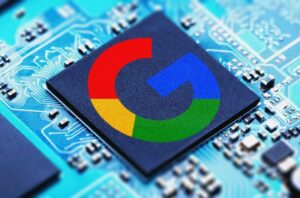Apple’s Worldwide Developers Conference (WWDC) recently marked a significant milestone as the tech giant broke its two-year silence on AI advancements. The conference was a showcase of innovation, revealing a suite of features poised to transform user interaction with the latest iPhone models. Here’s an in-depth look at the AI-driven enhancements and their implications for Apple users.
Revolutionizing the iPhone Experience with AI
The latest iOS update promises to elevate the smartphone experience with a host of AI-powered features. The highlight is the revamped Siri, boasting enhanced capabilities that streamline user interaction. Coupled with this are advanced summarization tools that distill information efficiently, a customizable home screen for a personalized touch, and sophisticated AI-enhanced photo editing options that cater to the creative whims of users.
However, to harness these cutting-edge functionalities, one must possess the iPhone 15 Pro or its successors slated for release later this year. These models are equipped with the necessary hardware to support the intricate AI processes, particularly those requiring on-device computation.
The Intersection of Hardware and AI
The decision to limit these features to the newest hardware might raise eyebrows, suggesting a strategy to drive sales. Yet, the rationale lies in the processing power required for AI tasks. On-device processing of AI tasks offers dual advantages: heightened security and reduced latency. Older iPhone models fall short in this regard, lacking the computational muscle to manage such tasks.
The AI functionalities are designed to leverage both on-device and cloud-based processing, with the complexity of the task dictating the approach. The A17 Pro chipset is the cornerstone of this capability, exclusive to the iPhone 15 Pro and iPhone 15 Pro Max. Notably, even the iPhone 15 and iPhone 15 Plus miss out on these AI perks, operating on the less potent A16 Bionic chip.
Good News for Mac and iPad Users
Mac and iPad enthusiasts can breathe easy; the latest AI features are accessible without the need for the newest models. Devices equipped with at least an M1 chip can enjoy the AI offerings, a relief considering Apple’s current production of M4-chip iPads and M3-chip Macs. This provides a buffer for those with slightly older devices.
Cloud-Based AI Features for Broader Access
For those not ready to upgrade to the iPhone 15 Pro, there’s no cause for alarm. A selection of iOS 18’s AI features will be available via cloud processing, ensuring a taste of the future for a broader user base. However, for the complete iOS 18 AI experience, an upgrade might be on the horizon.
In summary, Apple’s AI leap at WWDC heralds a new era for iPhone users, marrying sophisticated AI features with powerful hardware. While the move prioritizes newer models, it also extends a branch to Mac and iPad users, ensuring that the AI revolution is within reach for many in the Apple ecosystem. SEO-friendly keywords: Apple WWDC, AI advancements, iPhone 15 Pro, iOS update, Siri, summarization tools, customizable home screen, AI photo editing, on-device processing, A17 Pro chipset, M1 chip, iOS 18 AI features.





